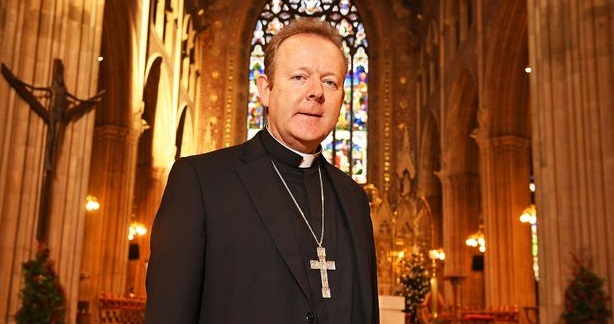The British government’s decision to ban all Troubles-related criminal and civil actions as well as legacy inquests, has been described as “deeply disheartening” and a “betrayal of trust” by the Primate of All-Ireland, Archbishop Eamon Martin of Armagh.
He said that Prime Minister Boris Johnson’s comments in the House of Commons on Wednesday July 14, which suggested that his legacy proposals would allow Northern Ireland to draw a line under the Troubles were, “naive”.
“The decision… will be seen by many victims as a betrayal of trust which denies justice to them and to their loved ones,” Archbishop Eamon said in a statement yesterday (July 15).
“It is disturbing that victims and survivors, those have paid the highest price for the fragile peace we all enjoy today, once more feel marginalised and neglected.
“At this painful time I ask for prayers of comfort for victims suffering on all sides in the conflict, and for truth and justice to prevail in the interest of the common good,” Archbishop Eamon continued.
“Dealing with the legacy of our shared past is not an easy task. It is a complex undertaking which belongs to all of us.
“It has no ‘quick-fix’. No ‘line can be drawn’ to relieve the deep hurt still carried in the aftermath of years of violence, death and life-changing injury.”
Archbishop Eamon said that the 2014 Stormont House Agreement, “signed up to in good will by all parties, sought to deal with our legacy in a collaborative and honest way which respected fully the input of victims in achieving consensus”.
“It is therefore deeply disheartening to witness a key signatory renege on this joint commitment,” he said.
“Sadly, this week’s announcement has been expected. In April 2020 the Catholic bishops in Northern Ireland published a considered statement criticising the UK government’s approach towards the legacy of the past. Its content included correspondence to the Secretary of State, Mr Brandon Lewis, and it remains relevant.
“The bishops supported the ongoing pursuit of appropriate criminal, legal and civic justice for all victims.”
The bishops “addressed prioritising victims as the focal point of a response to dealing with the legacy of the past; equal access to justice for all; facing the past however painful; achieving authentic reconciliation for a just and stable peace; and concern that the proposed legislation for Northern Ireland would mirror the provisions of the Overseas Operations (Service Personnel and Veterans) Act 2021 which does not honour human rights, avoids the rule of law, does not offer justice to victims, nor provides for a modality to underpin long-term peace and stability in a transparent, fair and equitable context.”
Archbishop Eamon added: “As the British government is now facing criticism from all quarters concerning its unilateral decision, the announcement begs the age-old question: ‘Cui Bono?’ (‘Who benefits?’).”
NI Secretary Brandon Lewis told the House of Commons on Wednesday about the plan to introduce a statute of limitations, likely up until 1998, banning all prosecutions of Troubles-related killings and other crimes in the autumn.
The plan would mean there would be no future prosecutions of former British soldiers and police officers or paramilitaries, republican or loyalist.
NI parties are expected to meet Mr Lewis today to discuss the proposals.


 Chai Brady
Chai Brady Archbishop Eamon Martin
Archbishop Eamon Martin 